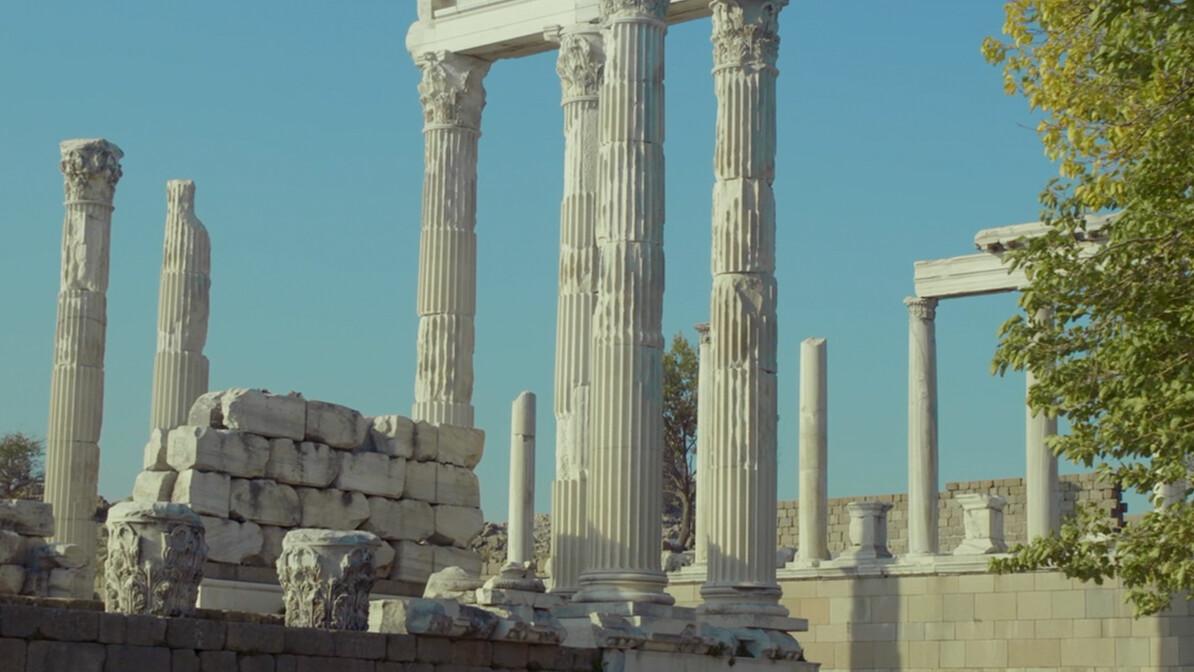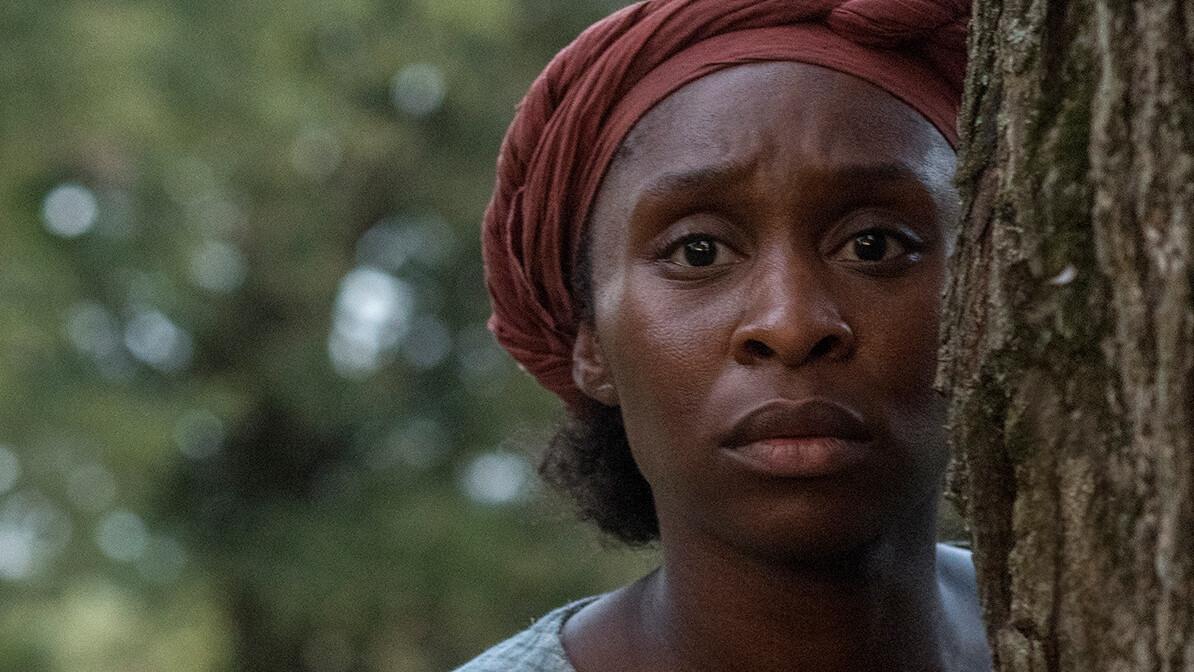- Home
- Entertainment
- Tim Mahoney and The 7 Churches of Revelation (Part 2)

Tim Mahoney and The 7 Churches of Revelation (Part 2)
John Farrell: In The 7 Churches of Revelation: Times of Fire you cover four different locations: Patmos and the locations of the first three churches that John wrote to in Revelation. When you look at the churches that received the first three letters, what can we learn from these churches and what they went through that John addressed in his letters? How can we apply that to today?
Tim Mahoney: My takeaway from it as I’ve looked at it was that we might be doing well in one part of our life, but we really need to examine areas where we might be blinded to. I think that we need to wake up and pay attention in our own personal life and our own faith to the full dynamic of maybe we’re doing well in one area of our life, but we’re disobeying in another.
What these letters were telling the churches is that, “You’re doing this well, but you’re failing in this area and you need to change.” I think that for all Christians, we don’t want to be standing before the Lord and have Him say, “You were pretty good at this, but you didn’t care for this family member.”
The letter to the first church at Ephesus says, “I know your deeds, your hard work, your perseverance. I know you cannot tolerate wicked men.” Then he says, “Yet I have this against you. You have forsaken your first love. ” And then it says, “Remember the height from which you have fallen.”
So here it is. They were really good at doing the hated stuff, but they didn’t necessarily love the Lord like they should have. I think that’s meant for everybody. Do we really want to spend time in prayer and talking to the Lord, or would we rather watch TV? That first church at Ephesus is probably one of the most convicting of all because a lot of people drag themselves to church on Sunday morning if they even go.
I think the first letter to the first church at Ephesus is saying that you’ve forsaken the first law. And if you do not repent, God will come to you and remove your lampstand from its place. I don’t think a lot of people realize how serious putting Jesus second, third, fourth, or fifth is, but at some point we’re going to be faced with that decision. This film is a wakeup call for all of us not to love other things more than Christ.
Now, the second church is basically a church that’s being told, “I know your afflictions and your poverty – yet you are rich. I know about the slander of those who say they are Jews and are not, but are a synagogue of Satan. Do not be afraid of what you are about to suffer” (Revelation 2:9-10).
So, for the second church, they might’ve had fear because they knew what was coming, and the Lord was saying, “Some of you are going to go to prison and some of you are going to die, but I’ll give you the crown of life.”
If we look at our churches in other parts of the world, that’s exactly what happened. Look at the church in Afghanistan right now. I heard that there were people on the phone with someone, then they came, and then there was no one there anymore. They were gone. This is happening around the world, and the Western church often forgets about those people because we can go watch a baseball game or do something else. We don’t have compassion for those other churches.
You asked, “Why is this important?” It’s important because every century or every decade these types of principles of our faith are happening. A hundred years ago, we might have had the same challenges that people were faced with, that the first churches were faced with. I think history repeats itself.
JF: What did you personally learn about these cities while watching the project?
Tim: I had no idea how courageous Paul was or how courageous Polycarp was. These are really courageous people. The first thing I realized is if I’m going to be a follower of Christ, I need to be courageous. I’m sure they were courageous because the Lord was in them.
The second thing I realized was the fact that these people knew they were gonna die and maybe be crucified for being a follower and yet these ordinary people – many of whom we won’t know who they are until we reach heaven – were willing to die a torturous death. I realized how strong their faith really was. I want to have my faith in the Lord and my understanding of His word that strong so that I do not fall away.
The Projects of Thinking Man Films
JF: Can you please tell me a little bit about Thinking Man Films?
Tim: Thinking Man Films is our documentary company. It grew out of the making of the Patterns of Evidence film series. What we are focused on is more investigative documentaries that make you think.
Right now, our big series is the Patterns of Evidence film series. We’ve got four feature films. It started with Patterns of Evidence: Exodus. That film took twelve years for me to make, but it started with me on a journey looking for the Exodus and coming back with a crisis of faith after my first trip because I was told there wasn’t any evidence for the Bible.
When I came home, I had this crisis and decided I had to continue to go search. Had I not persevered you and I wouldn’t be talking. I probably wouldn’t even be making films because there are times when people are faced with a crisis of faith where they doubt the Bible. I came to that place in a very powerful way. I was able to get past it and go on and make the first film. And it completely changed my life.
I have more confidence now in the Bible than I ever had before, but I had to face those doubts and find answers for them. That was that first film. That led me to a second film called The Moses Controversy, which I wasn’t planning on making, but that’s about the writing of the Bible.
What kind of writing system could Moses have used? People have uncovered that there is an early alphabet system, and it shows up at the exact time and place that the Israelites were in Egypt, but it’s not Egyptian. It’s powerful.
We know that without the ability to write how could you write down God’s Word. There were hieroglyphs and other things, but they were so complicated, and they didn’t teach them to everybody. But this new system, this new idea, which was an alphabet, became the basis of all alphabets. I believe the alphabet is a divine gift, and I believe that it was meant so that we would know the Word of God.
Number two is that it’s connected to the early form of Hebrew and because of that we can see scripture. It says, even in things like the Gospel of John, “In the beginning was the Word, and the Word was with God, and the Word was God” (1:1 NIV). And we think a ‘that’s an odd thing … the Word.’ Well, you can’t understand the Word unless you have the ability to read it. And this phonetic alphabet became the basis of all alphabets.
I think it was God giving us this gift of His alphabet so we would know His Word. And then it says the Word became flesh and dwelt among us. Why would John write that, “the Word became flesh”? I think there’s a huge connection.
The gift of the alphabet is so important. We can use it for lots of other things, but the main reason we have an alphabet and the reason we have the ability to read it is that it’s universally to give out God’s Word.
What do missionaries like Wycliffe missionaries do? They work on translating God’s Word into peoples’ languages. The first thing they printed using the printing press was the Bible. Even the idea for books came from the transportation of scriptures so you can have more economy instead of having a scroll with writing only on one side. Many of these advancements I think are God’s gift so that we will know His Word.
Trending Now
Sign up today for your Inspiration Today Daily Newsletter
Supercharge your faith and ignite your spirit. Find hope in God’s word. Receive your Inspiration Today newsletter now!
John Farrell
John Farrell serves as the Digital Content Manager at Inspiration Ministries, where he oversees the planning, organization, and management of website content to support the ministry's global digital outreach. With a strong background in writing and editorial strategy, John ensures that the articles, devotionals, and discipleship resources on Inspiration.org are accurate, engaging, and aligned with the ministry's mission.
John has authored more than 1,000 articles, press releases, and features for Inspiration Ministries, NASCAR, Lionel, and Speed Digital. His versatility as a writer is also showcased in his 2012 book, The Official NASCAR Trivia Book: With 1,001 Facts and Questions to Test Your Racing Knowledge.
A graduate of Appalachian State University, John brings excellence and attention to detail to the digital experience at Inspiration Ministries. He lives in Concord, N.C., with his wife and two sons.
Related Articles
March 10, 2025
Finding Total Victory on the Road to Championship
I have been playing competitive golf for 55 years. Through the various stages of my life, my…
March 7, 2025
Average Joe Movie: SCOTUS, Praying Football Coach Backstory
When Coach Joe Kennedy knelt to pray at the 50-yard line after a high school football game, he had…
February 28, 2025
The Power of Story: A Muslim Journey to Hope
Storytelling is one of the oldest and most powerful ways to touch the human heart. Parents tell…
February 27, 2025
‘Harriet’ Movie: Courage, Freedom, Faith
Antebellum abolitionist Harriet Tubman had convictions and courage that helped free herself…
Next Steps To Strengthen Your Walk
Inspiration Today Newsletter
Supercharge your faith and ignite your spirit. Find hope in God’s word. Receive your Inspiration Today newsletter now!
Christian Articles
Find articles to strengthen your walk and grow your faith. We have a wide range of topics and authors for you.
Submit A Prayer Request
We are here for you. Simply click on the button below to reach us by form, email or phone. Together we will lift our hearts and voices with you in prayer.





